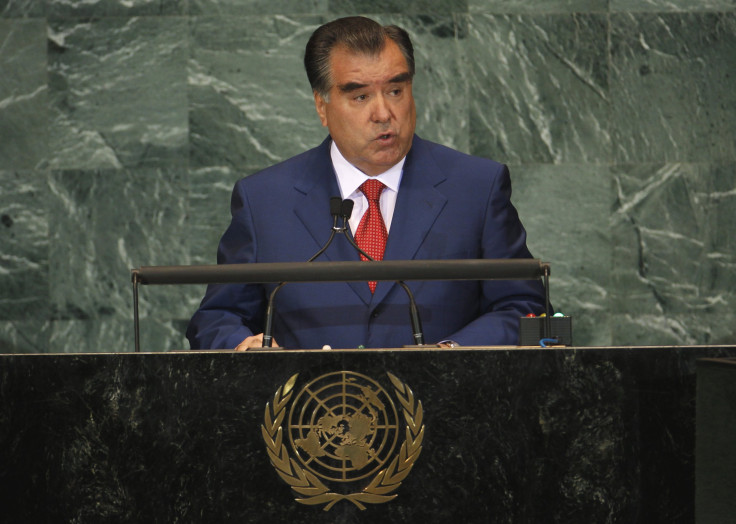Tajikistan Marriage Laws: 'Virginity' Tests, Medical Exams Proposed To Reduce Birth Defects, AIDS And Other Illnesses

Tajikistan is taking some unique steps to reduce its rate of birth defects, natal illnesses and diseases as well as address a potential HIV/AIDS crisis there by proposing a law that would make medical examinations mandatory for couples who want to marry. In addition, some officials are pushing not only for the medical exams but also for tests to prove a woman’s virginity.
The medical and virginity examinations are currently offered in the conservative country for free, but they’re optional. But after President Emomali Rahmon in January ordered an end to marriages between first cousins -- a popular practice in Tajikistan -- politicians got serious about trying to enact new laws addressing those concerns, EurasiaNet reported.
A woman living in Tajikistan’s capital city of Dushanbe told EurasiaNet that the proposed laws were a bit too invasive, even for a country known for its conservative stances.
“You do not see people in developed countries being forced into medical examinations before marriage. There, couples get the body ready before giving birth. They go through all the tests possible,” said Manizha Negmatullozoda. “And what happens to us here? Everywhere you go you are watched; there is a push to introduce a law on mandatory pre-marriage testing; you have got to follow their orders -- dress like they tell you, name your child and so forth.”
Traditional, informal virginity tests normally consist of families scrutinizing bed sheets the morning after a wedding. Nearly 80 percent of women who have the test performed on them admitted to consenting to it because of pressure from grooms or family, according to estimates from the Republican Center of Forensic Medicine, EurasiaNet reported.
In March, health officials in Tajikistan found that 1,546 residents out of 9,700 people no older than 18 living in the country were children of first cousins who had been born with physical or mental defects, according to Radio Free Europe Radio Liberty. In most cases, those children were reliant “on state support,” according to Rahmon.
The country also recently began debating separate legislation to bring an end to bestowing Arabic names on children, part of an overall effort to oppose Islam despite its being practiced by nearly 100 percent of the population, the Guardian reported.
© Copyright IBTimes 2024. All rights reserved.












